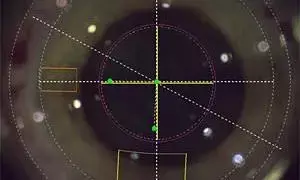- Home
- Medical news & Guidelines
- Anesthesiology
- Cardiology and CTVS
- Critical Care
- Dentistry
- Dermatology
- Diabetes and Endocrinology
- ENT
- Gastroenterology
- Medicine
- Nephrology
- Neurology
- Obstretics-Gynaecology
- Oncology
- Ophthalmology
- Orthopaedics
- Pediatrics-Neonatology
- Psychiatry
- Pulmonology
- Radiology
- Surgery
- Urology
- Laboratory Medicine
- Diet
- Nursing
- Paramedical
- Physiotherapy
- Health news
- Fact Check
- Bone Health Fact Check
- Brain Health Fact Check
- Cancer Related Fact Check
- Child Care Fact Check
- Dental and oral health fact check
- Diabetes and metabolic health fact check
- Diet and Nutrition Fact Check
- Eye and ENT Care Fact Check
- Fitness fact check
- Gut health fact check
- Heart health fact check
- Kidney health fact check
- Medical education fact check
- Men's health fact check
- Respiratory fact check
- Skin and hair care fact check
- Vaccine and Immunization fact check
- Women's health fact check
- AYUSH
- State News
- Andaman and Nicobar Islands
- Andhra Pradesh
- Arunachal Pradesh
- Assam
- Bihar
- Chandigarh
- Chattisgarh
- Dadra and Nagar Haveli
- Daman and Diu
- Delhi
- Goa
- Gujarat
- Haryana
- Himachal Pradesh
- Jammu & Kashmir
- Jharkhand
- Karnataka
- Kerala
- Ladakh
- Lakshadweep
- Madhya Pradesh
- Maharashtra
- Manipur
- Meghalaya
- Mizoram
- Nagaland
- Odisha
- Puducherry
- Punjab
- Rajasthan
- Sikkim
- Tamil Nadu
- Telangana
- Tripura
- Uttar Pradesh
- Uttrakhand
- West Bengal
- Medical Education
- Industry
No significant difference in final outcome between FLACS and Conventional Phacoemulsification: JCRS study

Visual acuity at 6 months is the same with both Femtosecond Laser Assisted Cataract Surgery and Conventional Phacoemulsification
A systematic review and meta-analysis conducted by researchers of Goethe University, Frankfurt and Ludwig- Maxilmilians University, Munich has concluded that there is no significant difference between Femtosecond Laser Assisted Cataract Surgery (FLACS) and Conventional Phacoemulsification Cataract Surgery (CCS) in terms of visual acuity and endothelial cell loss 6 months after the procedure.
The study has been published in the Journal of Cataract and Refractive Surgery.
FLACS is the most recent advancement in the field of cataract surgery where femtosecond laser is used to attain greater precision compared to conventional phacoemulsification surgery in crucial steps like wound construction, capsulorhexis and nuclear fragmentation.
To consolidate the information available in literature regarding the safety and efficacy of the two procedures, the researchers conducted a systematic search on PubMed, Cochrane Library and EMBASE for studies comparing FLACS and CCS. The results were as follows:
- A total of 73 studies were reviewed, of which 25 were randomized controlled studies and 48 were observational studies. More than 12000 eyes treated with each of the two procedures were included in the review.
- In eyes undergoing FLACS, the Corrected and Uncorrected Distance Visual Acuity and Spherical Equivalent were better than eyes undergoing CCS at 1 month and 3 months.
- The central corneal thickness on Day 1 and 3 months after surgery was less in eyes undergoing FLACS as compared to CCS.
- The total and effective phacoemulsification time was shorter with FLACS as compared to CCS. The cumulative dissipated energy was also less with FLACS.
- The endothelial cell loss after 3 months was less in eyes with FLACS.
- Anterior capsular rupture was noted more in eyes undergoing FLACS.
- However, there was no significant difference in the visual acuity or endothelial cell loss after 6 months between eyes undergoing FLACS or CCS.
- Rate of posterior capsular rupture was also comparable between the two procedures.
The study therefore concluded that though FLACS requires less ultrasound energy and provides more precise treatment, both procedures are effective and safe. It also highlights the fact that FLACS gives better results in the initial post-operative period but the final outcome at 6 months post-surgery is the same in both procedures.
FLACS is a more expensive procedure as compared to conventional phacoemulsification cataract surgery due to its requirement of laser delivery equipment. It is available generally only in specialized ophthalmic care hospitals in large cities as compared to conventional phacoemulsification cataract surgery which is routinely performed. This study therefore may have an impact on the decision making of the patient regarding the choice of surgery.
For further reading
Dr Sudha Seetharam is an Ophthalmologist practising at Laxmi Eye Institute, Maharashtra. She has received her MBBS from Medical College, Kolkata and M.S (Ophthalmology) from Maulana Azad Medical College, New Delhi. Writing and teaching are her passions. She is the author of the book “Self-assessment and Review of Ophthalmology” meant for MBBS students preparing for NEET PG Medical Entrance examination. She is a faculty of Ophthalmology at various teaching institutes and online platforms which train students for NEET PG Medical Entrance examination. She has also authored the book “Beyond Medicine- Life Lessons Learnt as a Doctor” which describes the real life experiences of a doctor during internship in a government hospital.
Dr Kamal Kant Kohli-MBBS, DTCD- a chest specialist with more than 30 years of practice and a flair for writing clinical articles, Dr Kamal Kant Kohli joined Medical Dialogues as a Chief Editor of Medical News. Besides writing articles, as an editor, he proofreads and verifies all the medical content published on Medical Dialogues including those coming from journals, studies,medical conferences,guidelines etc. Email: drkohli@medicaldialogues.in. Contact no. 011-43720751


